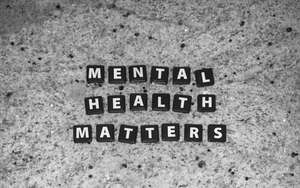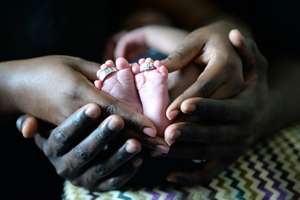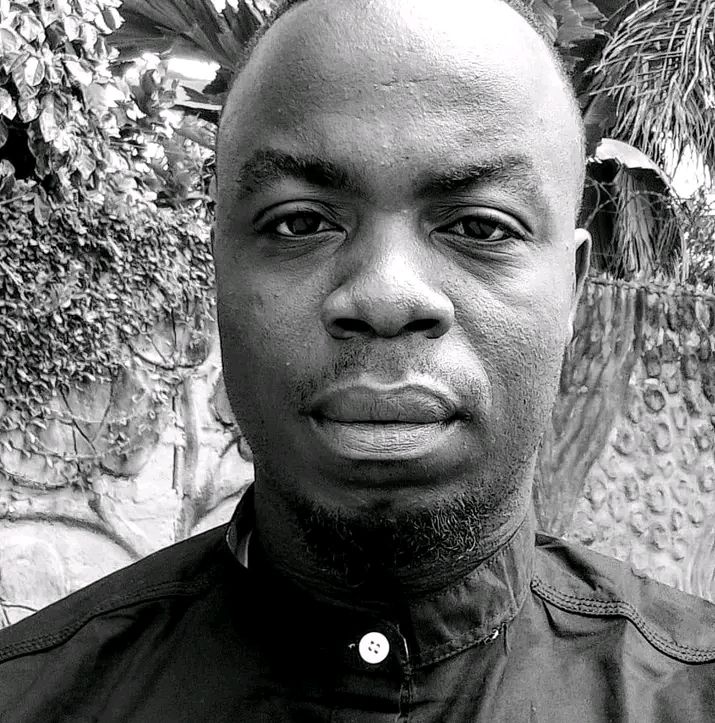
Silent Crisis: How Mental Health Tragedies Are Fueling Kenya's Homicide Epidemic
The Unseen Connection: When Mental Illness Turns Deadly
Reading Time: 11min
The brutal killing of female police officer Tiffany Wanyonyi in March 2024 sent shockwaves through Kenya. Found dismembered in her childhood home, her husband stood accused of the murder. What the headlines missed was the hidden backdrop of this tragedy—the silent mental health crisis spreading through Kenyan society like a shadow pandemic. While her case initially appeared as another horrifying statistic in Kenya's escalating femicide rate (a record 170 women killed in 2024 alone), those working in mental health recognize a more complex pattern emerging.
Kenya faces a dual crisis of rising violence and deteriorating mental wellbeing that remains largely unaddressed. The connection between these two phenomena represents one of the most significant yet overlooked public health challenges in the country today. This article examines five homicides linked to poor mental health, exploring the systemic failures and societal conditions that allow such tragedies to occur, and proposes concrete solutions for a more compassionate, effective approach.
The Scope of Kenya's Mental Health Crisis
Kenya's mental health burden represents a staggering challenge to both public health and public safety. According to reports, approximately one in every ten Kenyans suffers from a common mental disorder, with the number increasing to one in every four among those seeking outpatient services . The World Health Organization estimates that mental health conditions account for 13% of Kenya's entire disease burden, with depression, anxiety disorders, and substance use disorders among the leading diagnoses.
The economic impact is equally concerning. The Ministry of Health's Mental Health Investment Case 2021 calculated Kenya's burden of mental health conditions at approximately Ksh 62.2 billion annually (0.6% of GDP) due to lost productivity capacities. Despite this enormous cost, the government allocates a mere 0.01% of the national health budget to mental health services—equivalent to just 15 cents per capita, far below the recommended Ksh 250 per capita needed for basic services.
The Treatment Gap
This financial neglect creates devastating treatment gaps. Household out-of-pocket spending accounts for 27% of health expenditure in Kenya, significantly exceeding the WHO recommended target of 12-15%. For rural populations, this financial burden is even higher, placing mental health care out of reach for millions of Kenyans already struggling with poverty and limited access to services.
The human cost of this neglect is measured in lives lost—both to suicide and homicide. A 2021 study revealed that between 2016 and 2020, Kenya's National Police Service recorded 65 cases of murder and 57 cases of suicide within the service alone—averaging 13 murders and 11 suicides per year. These numbers hint at the profound mental health challenges facing even those entrusted with public safety.
Five Homicides Linked to Mental Health Crises
Case 1: The Police Officer Murder-Suicide: In one of the most telling examples of the mental health crisis within law enforcement, a police officer attached to Langata Police Station shot a colleague's wife and girlfriend dead before turning the gun on himself. The incident was attributed to "internal issues" within the police camp where the officer lived, highlighting the toxic environments and psychological stress that many officers endure without adequate support or intervention.
This tragedy represents a pattern rather than an anomaly. According to National Police Service statistics, such murder-suicides have become alarmingly common in recent years. The easy access to firearms combined with untreated mental health conditions creates a lethal combination that endangers both officers and the public they serve.
Case 2: Substance-Fueled Family Tragedy: While specific cases weren't detailed in the search results, the well-documented link between substance abuse and violence appears in multiple contexts throughout Kenya. Mental health professionals note that alcohol and drug use disorders frequently co-occur with other mental health conditions, creating a volatile combination that increases the risk of violent behavior.
The Mathari Mental Hospital study found that although alcohol plays a significant role in criminal behavior, few alcoholics were referred for mental health assessment, suggesting that "even chronic alcoholics are being held criminally responsible for the consequences of their disease" rather than receiving appropriate treatment.
Case 3: Domestic Violence Turned Deadly: The story of Tiffany Wanyonyi, a female police officer murdered by her husband, illustrates the complex intersection of mental health, domestic violence, and professional culture. Despite her position of authority and training, Tiffany reportedly experienced ongoing domestic abuse, with her husband allegedly refusing employment and creating financial tensions within the household.
Her case underscores a painful reality: even those tasked with protecting others often lack protection themselves. Tiffany's father recalled reporting one assault to police, only to have his daughter withdraw the case days later, telling her mother, "That's the man I love". This dynamic reflects the psychological complexities that keep victims trapped in dangerous relationships, often with fatal consequences.
Case 4: Officer-Perpetrated Violence Against Civilians: The fatal shooting of mask vendor Boniface Kariuki during protests in June 2025 exemplifies another dimension of the mental health-violence connection. Kariuki, a bystander, was shot in the head at close range by a police officer during protests. Two officers were arrested in connection with the shooting, which sparked national outrage.
Such incidents of excessive force often reflect the immense psychological pressure placed on law enforcement personnel. As noted by Amnesty Kenya, contributing factors to police violence include "psychological stress leading to poor mental health, easy access to firearms, and the nature of recruitment and training," along with "discrimination and unfair treatment by superiors".
Case 5: Mentally Ill Offenders in the Justice System: The Mathari Mental Hospital study examined 141 mentally ill criminals referred by judges and magistrates for psychiatric evaluation. Of those referred, 95% were found to have genuine mental illness, with the majority diagnosed as schizophrenics. Notably, 27 of the 80 schizophrenics in the study had committed murder, though no specific correlation was found between any particular mental illness and specific crimes.
This case illustrates the judicial system's struggle to appropriately address defendants with mental health conditions. The study also noted the "total absence of criminal psychopaths from the sample group," suggesting that "mental illness which is not conspicuous may be ignored by judicial officials".
Systemic Failures and Contributing Factors
Institutional Neglect
Kenya's mental health system suffers from decades of underinvestment and institutional neglect. The 2020 Report by the Mental Health Taskforce argued that Kenya has a "high burden of mental health-related to poor health, psychosocial disability and premature mortality with significant gaps in access to care". The task force recommended that the government declare mental health a national emergency—a call that has largely gone unheeded.
The Kenya National Commission on Human Rights (KNCHR) has expressed concern that budgetary allocations to the mental health sector have not improved from the meager 0.01% of the national health budget. This financial neglect directly impacts the quality of care, as evidenced by the KNCHR's assessment of mental health facilities, which found "the standard of living for service users in the mental health facilities was poor" with violations of "the right to exercise legal capacity and the right to personal liberty and security of the person".
Cultural Stigma and Misunderstanding
Deep-rooted stigma surrounding mental illness represents a significant barrier to treatment and early intervention. The KNCHR notes that "a majority of Kenyans identify mental health and mental health illnesses with negative narratives which subsequently translates to a lack of emphasis on the importance and benefits of mental wellbeing".
This stigma is particularly pronounced within high-stress professions like law enforcement, where admitting vulnerability or seeking psychological help is often viewed as weakness. Female police officers, in particular, face immense pressure to maintain a "strong woman" persona, leading many to suffer in silence rather than report abuse or seek help.
Inadequate Support Systems
The absence of robust support systems for those experiencing mental health challenges creates preventable tragedies. Within the police service, despite the existence of a counselling and chaplaincy department, officers report insufficient psychological support. The nature of police work—exposure to trauma, violence, and human suffering—creates unique mental health vulnerabilities that require specialized, accessible care.
Similarly, victims of gender-based violence often lack adequate resources and protection. The Nairobi Women's Hospital's Gender Violence Recovery Center reports receiving approximately 4,000 gender-based violence cases monthly, highlighting the overwhelming need for services that address both immediate safety and underlying mental health needs.
Pathways to Solutions: An Integrated Approach
Policy and Legislative Reforms
Kenya has taken some important steps toward addressing mental health concerns, including the enactment of the Mental Health (Amendment) Act, 2022, which identifies persons with mental illness to include "a person diagnosed with alcohol or substance use disorder and a person with suicidal ideation or behaviour". The Act further provides for the rights of persons with mental illness, including the right to "appropriate, affordable, accessible physical and mental medical health care; counselling; rehabilitation; and after-care support."
However, legislation alone is insufficient without adequate funding and implementation. The KNCHR has called for "increased mental health budget and financing to realize the return on investment envisaged in the Mental Health Investment Case, 2021". This includes implementing the High Court judgment that ended "detention of persons with mental illness at President's pleasure" and ensuring that mental health facilities create "a conducive physical and social environment and end inhumane and degrading practices such as involuntary detention and treatment, coercion, violence and abuse of service users".
Institutional Support Systems
For police officers and other high-risk populations, specialized mental health support is essential. Amnesty Kenya recommends implementing the National Police Service Psychological Counseling Policy, particularly regarding "the posting of mental health experts to police posts, stations, and divisions". Additionally, officers' medical insurance should cover "mental health-related illnesses and rehabilitation costs."
Improved working conditions for police officers—including regular hours, overtime allowances, food on duty, and transportation—could also reduce stress and prevent burnout . Commanding officers should "periodically monitor and audit stress levels and job satisfaction to support officers' emotional needs" and use "informed judgment when issuing firearms to officers suspected of suffering from mental disorders".
Community-Based Interventions
Community mental health services that reach vulnerable populations before crises occur are essential for prevention. The KNCHR advocates for "enhancement of mental health systems and improved access to community based mental health services to respond to the needy and most vulnerable groups such as persons with disabilities, older persons, intersex persons, victims of sexual, gender-based violence, and other victims of crime".
Similarly, integrating mental health indicators into national health data systems through the DHIS would help "effectively bridge the current data and information gap on mental health conditions experienced in Kenya". Better data leads to more targeted interventions and more effective resource allocation.
Conclusion: A Call for Compassion and Action
The intersecting crises of mental health and violence in Kenya represent not just a public health emergency, but a fundamental challenge to the nation's humanity and values. Each life lost to mental illness—whether as victim or perpetrator—represents a systemic failure to protect, support, and heal those most vulnerable.
As Roseline Odede, Chairperson of the Kenya National Commission on Human Rights, powerfully states: "Mental health is a human right which should be respected regardless of religion, gender, culture and socioeconomic status". This right extends not only to care and treatment but to dignity, autonomy, and inclusion in community life.
Addressing the connection between mental health and violence requires more than individual interventions—it demands a societal transformation in how we understand, discuss, and prioritize mental wellbeing. It requires declaring mental health a national emergency, as recommended by the Mental Health Taskforce, and mobilizing resources accordingly.
The five homicides examined here represent not just personal tragedies but systemic failures that should compel us to action. They remind us that mental health is not a peripheral concern but a central determinant of public safety, social harmony, and national prosperity.
As Kenya continues to grapple with waves of protest, economic challenges, and social transformation, investing in mental health may be one of the most strategic decisions the nation can make. By building a mental health system rooted in human rights, compassion, and evidence-based practice, Kenya can prevent future tragedies and create a society where every person has the opportunity to thrive.
"Access to Quality and Affordable Mental Health Services is a Universal Human Right!"
If you or someone you know is struggling with mental health issues or experiencing violence, please reach out to:
- Mental Health Hotline: 1199 (toll-free)
- Nairobi Women's Hospital Gender Violence Recovery Centre
- Your nearest health facility for support and referrals

















